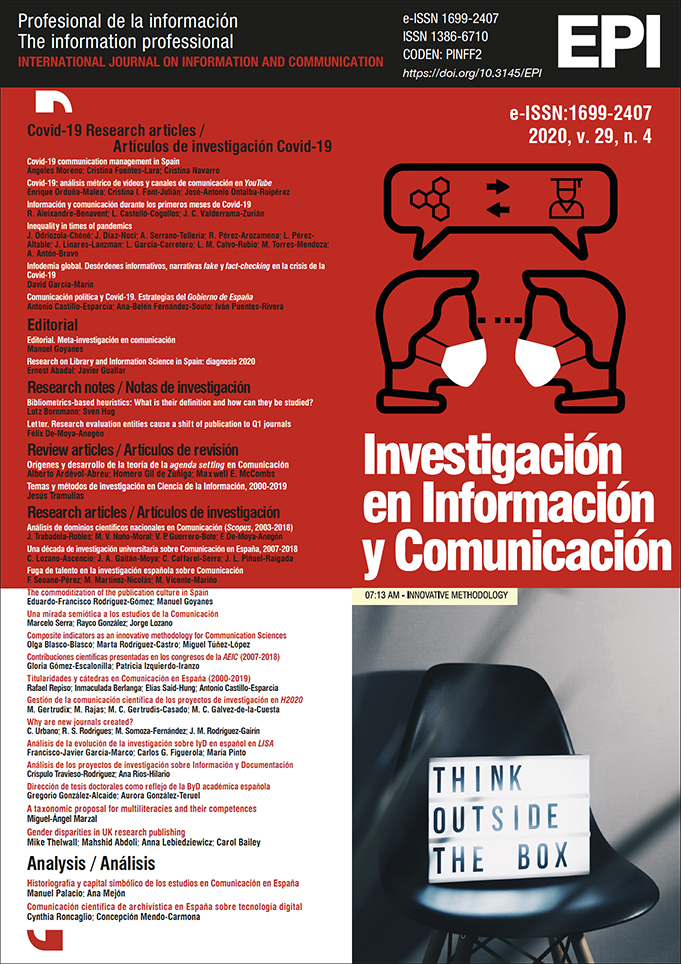Letter. Research evaluation entities cause a shift of publication to Q1 journals
DOI:
https://doi.org/10.3145/epi.2020.jul.31Palabras clave:
Scientific journals, Scholarly communication, Scientific production, International rankings, Acreditation agencies, Public regulation, Research evaluation entities, ScopusResumen
In Scopus there are four times more documents in first-quartile publications than in fourth-quartile ones. Publishers intend to adjust the editorial supply to the demand from authors, which seems to focus primarily on Q1 publications. Since 44% of the papers are concentrated in Q1 journals, papers published in journals in this quartile will be more likely to exceed the global average of impact. To the extent that publications are in greater demand by authors, they tend to be absorbed in different ways by large publishing groups. It has not been the growth of the editorial offer that has caused this over-demand from authors, but rather the identification of part of the editorial offering by public regulators as reliable in the research evaluation processes, resulting in a concentration of demand for Q1 journals by researchers.Descargas
Descargas
Publicado
Cómo citar
Número
Sección
Licencia
Condiciones de difusión de los artículos una vez son publicados
Los autores pueden publicitar libremente sus artículos en webs, redes sociales y repositorios
Deberán respetarse sin embargo, las siguientes condiciones:
- Solo deberá hacerse pública la versión editorial. Rogamos que no se publiquen preprints, postprints o pruebas de imprenta.
- Junto con esa copia ha de incluirse una mención específica de la publicación en la que ha aparecido el texto, añadiendo además un enlace clicable a la URL: http://revista.profesionaldelainformacion.com
La revista Profesional de la información ofrece los artículos en acceso abierto con una licencia Creative Commons BY.




